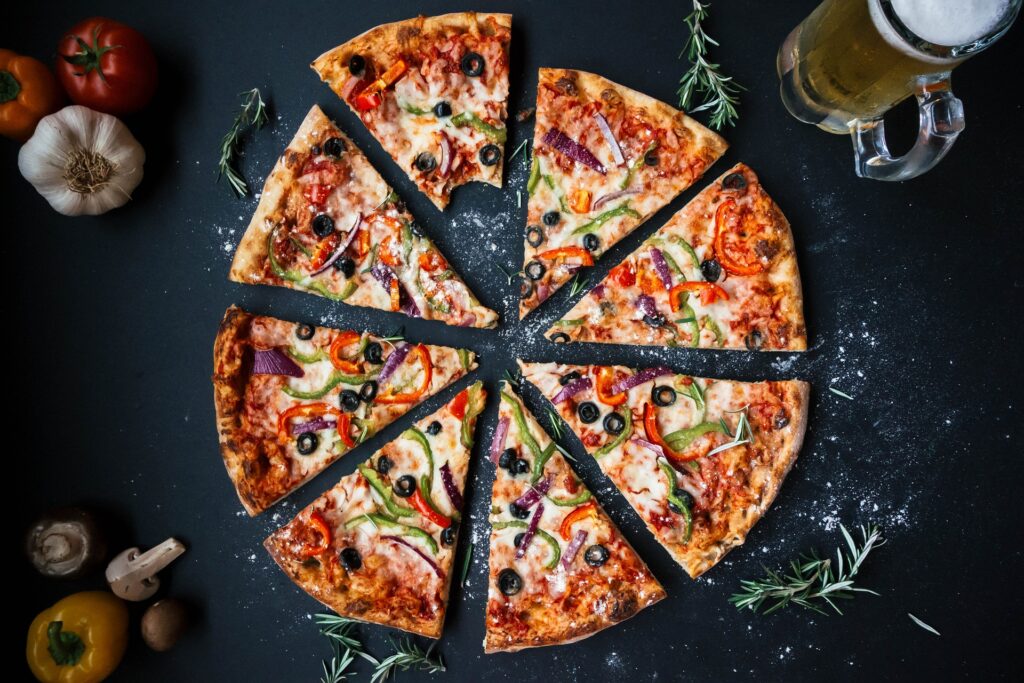How do you know when you should bulk vs. when you should cut?
Are you a healthy body weight? What are your long term goals? Are you training for an event, or gene...
| September 27, 2021
Read time: 3 min.

Binge eating is incredibly common, especially among women, but it’s important to differentiate between binge eating and simply over consuming calories. Binge eating is the uncontrollable consumption of food, eating well beyond full, often followed by some kind of restriction or purging behaviour.
There’s often a lot of secrecy in binge eating disorder, like buying a large amount of food to binge in private, rather than eating too much food out at a restaurant with friends. The biggest difference between someone who binges versus someone who over consumes is a complete lack of pleasure and control during the binge. There’s often a deep sense of guilt accompanied with binge eating disorder.
A common mistake someone makes post binge is engaging in a period of purging or restriction. If you do this, it will just set you up for another binge. You’ll get stuck in this system of binge/restrict, that’s very difficult to break out of. As much as you won’t want to, continue eating your meals as per usual post binge, even if you’re not really hungry. I would also emphasize having a high protein diet, as a lot of people binge because they are truly hungry. A high protein diet will prevent big fluctuations in your blood sugars, and keep you feeling fuller, longer. Aim for 2g/kg of your goal bodyweight, which will likely be a lot more than you’re used to eating. You’ll also want to evenly distribute your meals, again, to prevent any major surges in hunger, which can quickly trigger a binge. While you work on reducing your binge eating tendencies, I’d like you to avoid any kind of dieting at all. This is not the time to diet. It will just trigger a binge. Address the binge eating first, then decide if going into a dieting phase would be a healthy option for you or not.
People who struggle with binge eating typically workout vigorously, in attempts to offset their caloric intake and as a means of self punishment. For this reason, I often suggest my clients to lift weights 3-4 times a week, at a moderate intensity, and to hit a steps goal of 10-12k daily. No cardio. Too much cardio can also drive up hunger, which can trigger a binge. We titrate cardio back in once the binge eating is under control.
Keep your ‘trigger’ foods out of your home, at least temporarily. These are the foods that no matter what the circumstances, you have a hard time with portion control. This isn’t forever, but it’s better to set yourself up for success as best we can, while addressing binge eating. In the future try reintroducing those trigger foods one again, and you might find that you no longer struggle with portion control for these foods.
On your journey keep in mind that you will probably slip up every once in a while. It doesn’t make you a failure. Instead, I want you to journal out what happened for you, before and after the binge. What was your day like? Anything out of the ordinary? Did you eat enough prior to the binge today? Are you more stressed than usual? How is your emotional state, before and after the binge? I would like to remind you that binge eating isn’t a lack of willpower or flaw in your character, but a symptom that something is ‘off.’ It can be useful to work with a psychologist who specializes in eating disorders while you embark on this journey, to further get to the root cause of your binge eating behaviours. Binge eating has actually very little to do with food, and everything to do with your psychological state. Keep in mind that what you look like is the least interesting thing about you.
New articles, content with tips, inspiration, and coaching directly to your inbox.